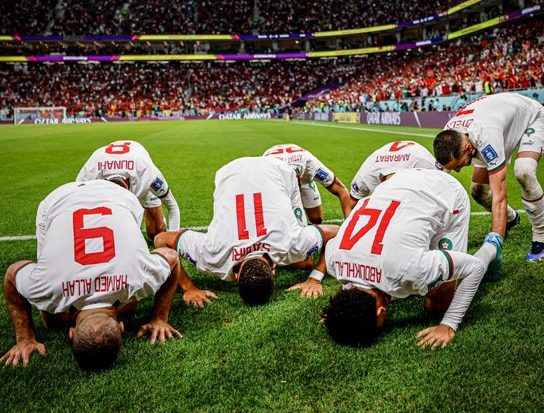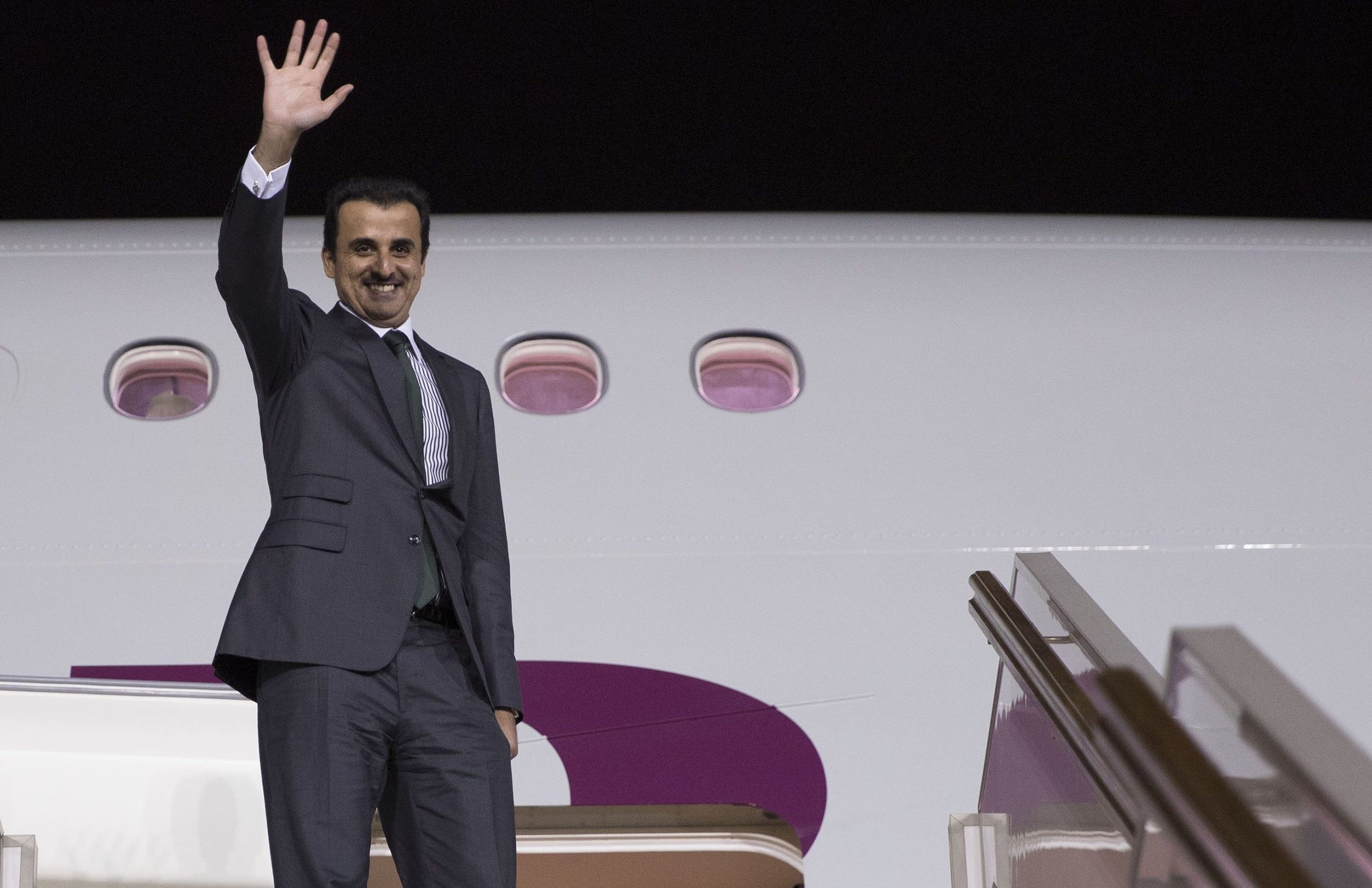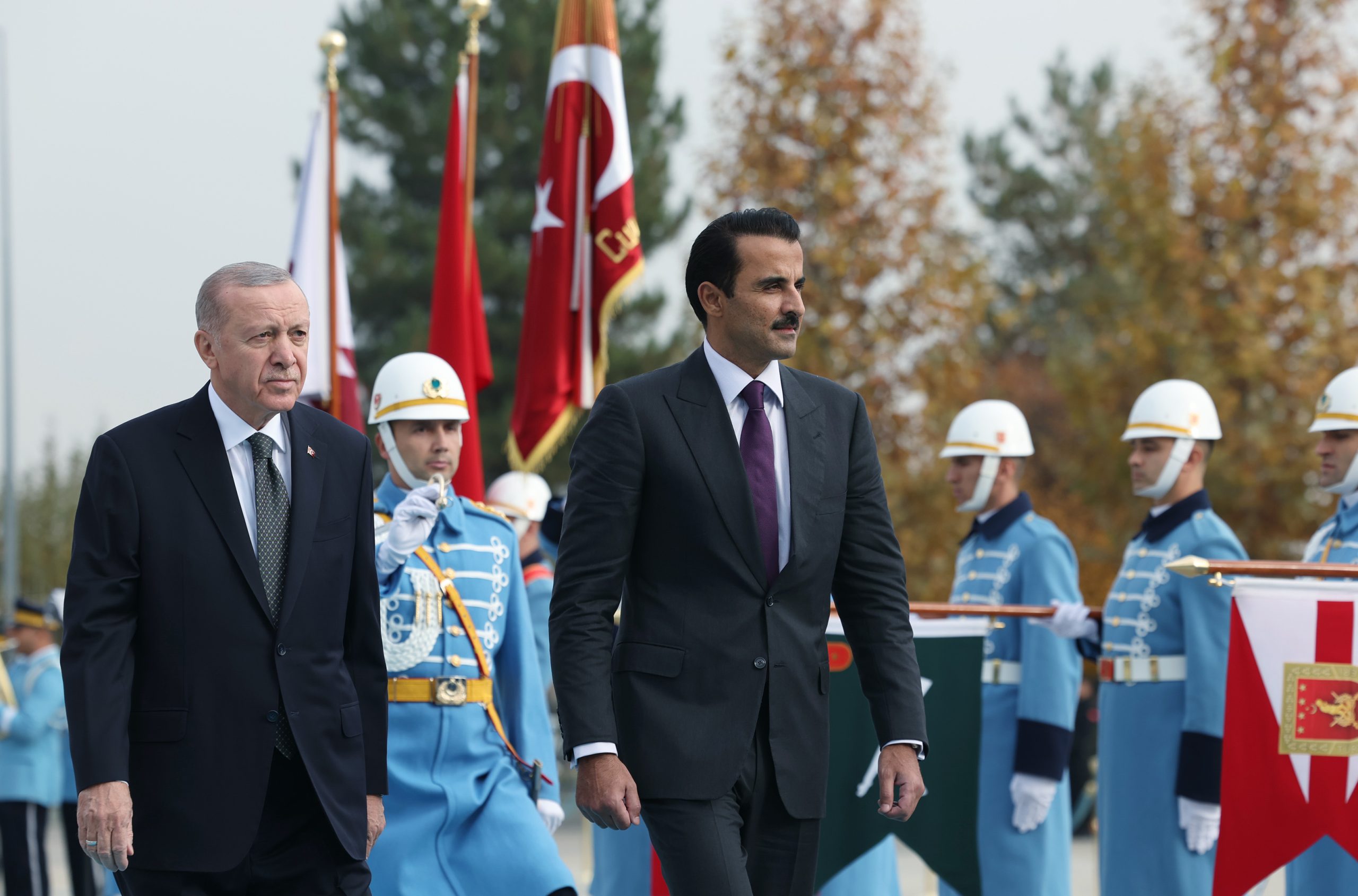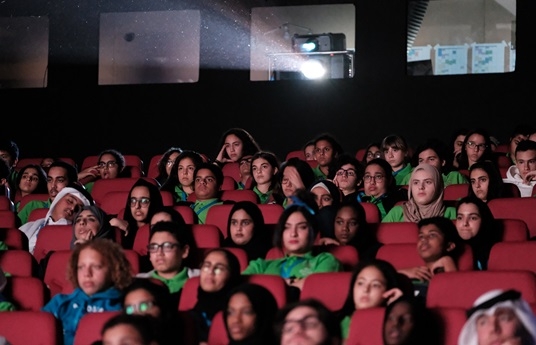Ever since Egypt appeared at the 1934 World Cup, the Arab World has longed for a strong performance on an international stage.
Qatar’s World Cup was a forthright indicator of the Arab football world’s development within the game as Morocco, Saudi Arabia, and Tunisia crowned impressive stunts.
Often perceived as a European-led tournament, Qatar’s hosting of the World Cup will forever be known for its underdog wins, staged by Arab nations on the pitch.
Super-hosts Qatar
Qatar’s Al Annabi may have had a long shot to make it far in their World Cup campaign, but they managed to nail an unforgettable goal against Senegal.
Their lone goal against the African Champions showcased that the team could still put up a fight, edging Mohammed Muntari into history books as he became the first player to net a World Cup goal for Qatar.
Though their defence in the three games played was largely absent, the national team maintained their enthusiasm throughout the group stage, reflecting the host nation’s welcoming spirit.
Moroccan guard
Morocco’s historic run is at the very top of the list, a country that has only competed in six World Cups, finishing fourth place in Qatar.
Despite its semi-final exit against Croatia, the team’s inspiring story will remain a model for underdogs in future World Cups as they eliminated Belgium, Spain and Portugal.
All three teams were contested to be heavyweights but were outperformed by Walid Regragui’s young men.
Defence ultimately wins games, and the Atlas Lions kept four clean sheets in the six games, more than any other side at the tournament before conceding against France.
To put it into perspective, the Moroccans’ total of three conceded goals is lower than the other three teams that played six games, including champions Argentina, runners-up France and Croatia.
Goalkeeper Yassine Bounou was a climactic hero for his team, especially against Spain in the round of 16 clash that ended in penalties.
The Spaniards played a strong team game creating several opportunities to nail in a goal as they dominated 75% ball possession and completed nearly 1,000 passes in total.
Yet, the tactical game was no match for the Moroccan defenders, who held their own against the 2010 World Cup victors.
Bounou excelled in the goalless 120 minutes and continued to do so as he saved penalties from Carlos Soler, Sergio Busquets and Pablo Sarabia, who struck the post.
The loss was a disappointing one, especially since leading up to the match, Spain had practiced “at least 1,000 penalties” in case of a penalty shoot-out.
“I imagine that they have done their homework. Over a year ago, in one of the Spain camps, I told them they had to get here with at least 1,000 penalties taken. If you wait until getting here to practice penalties… [it won’t be enough],” Coach Luis Enrique told reporters.
Saudi shockers
Saudi Arabia’s 2-1 victory over Argentina was rated the biggest shock in World Cup history by data company Nielsen Gracenote, as the Arabians defeated an Argentine side unbeaten in 36 matches.
Ahead of the match, Lionel Messi’s squad was expected to dominate the game as Saudi Arabia were not seen as a competitive side during the World Cup.
Having qualified for six FIFA World Cup tournaments, the country’s best performance was in 1994 when they reached the round of 16.
Internally, the team had low expectations from its country as Crown Prince Mohammed bin Salman encouraged his side to just ‘enjoy the tournament’.
“I know that our group is very difficult in the World Cup, and I ask you to play comfortably,” said bin Salman.
“We’re following what you’re doing, and we hope the future is better,” he added.
Yet, to much of the football world’s surprise, the Falcons displayed an unbelievable collectiveness as Saleh Al-Shehri, and Salem Al-Dawsari dazed the defence of Argentina.
The 51st FIFA ranked Saudis registered a comeback that was not anticipated by football commentators or fans, as Argentina was left humiliated on the pitch in front of a crowd of 88,012.
Messi gave his country a 10th-minute lead from the penalty spot with an effortless spot kick.
VAR checks saved the Herve Renard’s side as three goals were disallowed, leaving them highly uneasy in the first half.
Yet a motivating speech by the French coach produced exquisite finishes from Al-Shehri and Al-Dawsari in the space of four minutes, turning the game on its head for Messi’s squad.
Despite the Saudis losing their captain to an injury, the team held a a resilient and aggressive defence.
Goalkeeper Mohammed Al Owais denied Nicolas Tagliafico from close range and held headers from Messi and young star Julian Alvarez.
Al Owais cut five shots on his box depicting a formidable task that not many goalkeepers worldwide could do against a Messi crew.
The Falcons brilliantly perpetrated a trap system as Argentina ended up being caught offside seven times throughout the match.
The Arab world united to celebrate Saudi Arabia’s win over World Cup Argentina, inspiring millions that anything is possible.
Vigorous Tunisia
A triumphant team within the African continent, Tunisia won the 2004 African Cup of Nations on its home turf, the African Nations Championship and the Arab Cup.
Nevertheless, on the international stage, the Carthage Eagles have had six appearances at the World Cup stage and finished their 2022 campaign with a notable 1-0 victory over France.
Tunisia, despite the victory, did not go through due to Australia beating Denmark as they hoped for a draw, but their match against the French exposed coach Didier Deschamps’s poor management of his squad.
Nine changes with Les Blues were made as Tunisia pressed relentlessly into the attacking position, with France lacking momentum on both sides of the field.
31-year-old Wahbi Khazri would be the first African player in World Cup history to score in three consecutive starts and lifted Tunisia to their third win in 18 matches at the finals.
Khazri dribbled into the box in the 58th minute and slipped the ball past back-up goalkeeper Steve Mandanda, whose delay in save ended France’s six-match winning streak at the World Cup.
Aissa Laidouni and Ellyes Skhiri were men of the match as they ridiculed the French footballers offensively and shipped a nutmeg against Eduardo Camavinga.
Despite the early exit in the tournament, Tunisia left the pitch with a message that the football world could soon be witnessing a change in power rankings.







